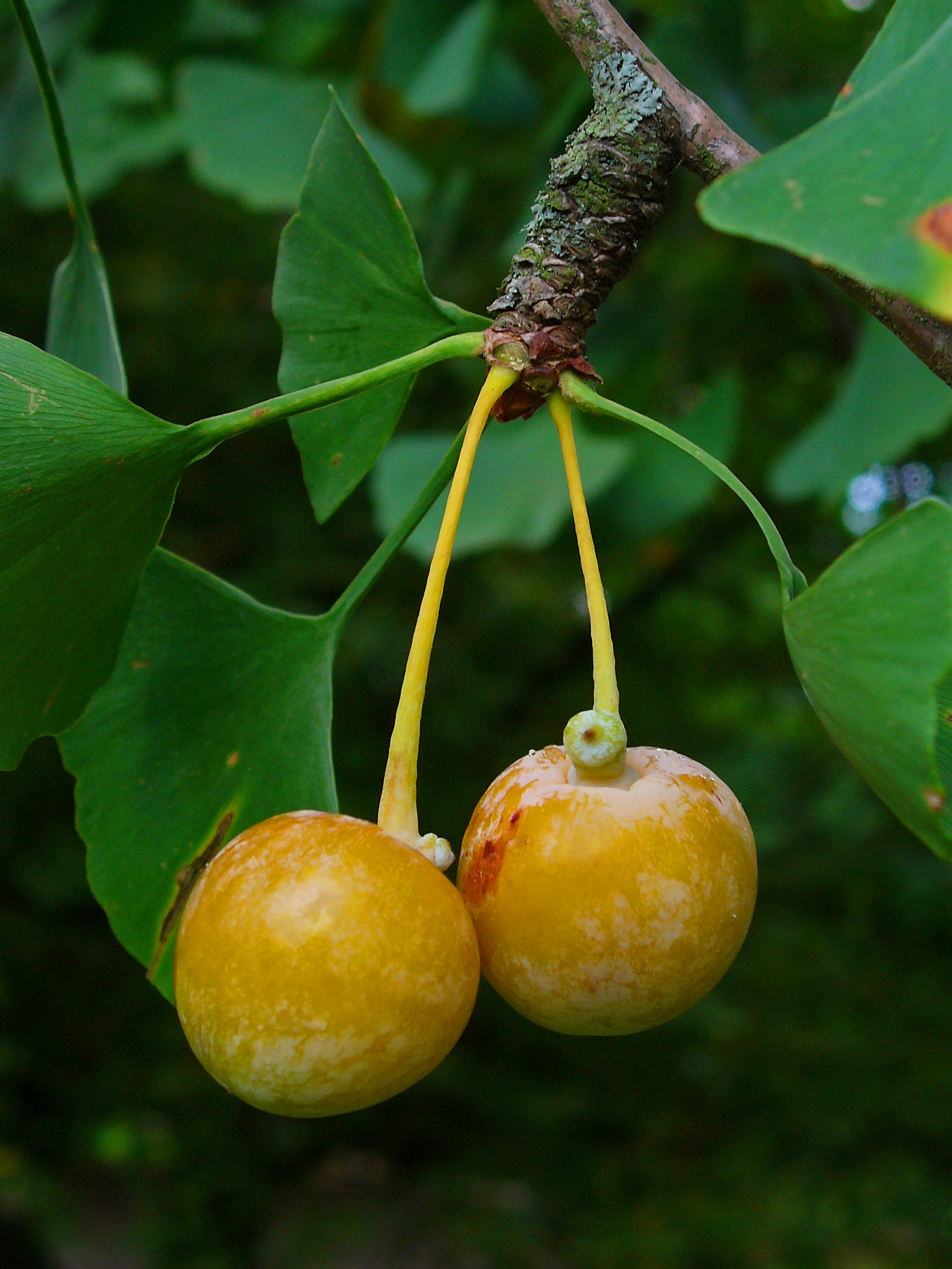Common Names and Other Names:
- Ginkgo Biloba
- Maidenhair Tree
- Ginkgo
- Kew Tree
- Silver Apricot
Where Does It Occur:
Ginkgo biloba is native to China, where it has been cultivated for thousands of years. It is considered a living fossil, being the only surviving member of an ancient group of trees dating back over 200 million years. Today, Ginkgo trees are grown worldwide in various regions:
- East Asia: China, Japan, Korea
- Europe: Widely planted in urban areas and botanical gardens
- North America: Commonly found in parks, streets, and gardens
The tree thrives in temperate climates and is known for its resilience to pollution and disease, making it a popular choice for urban landscaping.
Basic Ingredients (Constituents):
Ginkgo biloba leaves contain several bioactive compounds responsible for its medicinal properties:
- Flavonoids:
- Quercetin
- Kaempferol
- Isorhamnetin
- Terpene Lactones:
- Ginkgolides A, B, C, J, and M
- Bilobalide
- Organic Acids
- Proanthocyanidins
- Ginkgolic Acids: Present in minimal amounts due to potential toxicity
These compounds contribute to Ginkgo’s antioxidant, anti-inflammatory, and vasodilatory effects.
Most Commonly Used For Treatment Of:
- Cognitive Function and Memory Enhancement:
- Age-Related Cognitive Decline: May improve memory, attention, and mental clarity.
- Dementia and Alzheimer’s Disease: Used to alleviate symptoms and slow progression in mild to moderate cases.
- Peripheral Vascular Disorders:
- Intermittent Claudication: Improves blood flow in the limbs, reducing pain during walking.
- Raynaud’s Phenomenon: May decrease frequency and severity of episodes.
- Anxiety Disorders:
- Reduces symptoms of generalized anxiety.
- Eye Health:
- Glaucoma: Antioxidant properties may protect retinal cells.
- Macular Degeneration: Potentially slows progression.
- Tinnitus and Vertigo:
- May alleviate ringing in the ears and improve balance.
- Sexual Dysfunction:
- Enhances blood flow, potentially improving erectile function.
Side Effects:
While generally safe for most adults, Ginkgo biloba may cause:
- Gastrointestinal Issues:
- Nausea
- Diarrhea
- Stomach upset
- Headaches and Dizziness
- Heart Palpitations
- Allergic Reactions:
- Skin rashes
- Itching
- Increased Bleeding Risk:
- Prolonged bleeding from cuts
- Nosebleeds
- Seizures:
- Rare, but possible, especially with consumption of seeds containing ginkgotoxin
Available Forms in the Market:
- Standardized Extracts:
- Typically standardized to contain 24% flavone glycosides and 6% terpene lactones.
- Capsules and Tablets:
- Most common form for supplementation.
- Liquid Extracts and Tinctures:
- Concentrated forms for oral use.
- Teas:
- Made from dried leaves.
- Powders:
- Ground leaves used in supplements or teas.
- Topical Preparations:
- Creams and lotions for skin applications (less common).
Research and Results:
- Cognitive Function and Dementia:
- Study: “Ginkgo biloba extract in dementia: A systematic review.”
- Findings: Some studies indicate modest improvements in cognitive function for dementia patients.
- Link: Cochrane Database
- Intermittent Claudication:
- Study: “Ginkgo biloba for intermittent claudication.”
- Findings: Improved pain-free walking distance in patients.
- Link: Cochrane Database
- Anxiety Reduction:
- Study: “Efficacy of Ginkgo biloba extract EGb 761® in patients with generalized anxiety disorder.”
- Findings: Significant reduction in anxiety symptoms compared to placebo.
- Link: Journal of Psychiatric Research
- Antioxidant Effects:
- Study: “Antioxidant properties of Ginkgo biloba leaf extracts.”
- Findings: Demonstrated protective effects against oxidative stress.
- Link: Journal of Ethnopharmacology
- Eye Health:
- Study: “Ginkgo biloba extract in the treatment of glaucoma.”
- Findings: Potential improvement in pre-existing damage to optic nerve fibers.
- Link: Ophthalmology Journal
Precautions:
- Bleeding Disorders:
- Avoid use if you have a bleeding disorder or are taking anticoagulant medications.
- Pregnancy and Breastfeeding:
- Not recommended due to insufficient safety data.
- Epilepsy and Seizure Disorders:
- May lower seizure threshold; consult a healthcare provider.
- Diabetes:
- Monitor blood sugar levels; Ginkgo may affect insulin secretion.
- Upcoming Surgery:
- Discontinue use at least two weeks prior to surgery to reduce bleeding risk.
- Interactions with Medications:
- Anticoagulants and Antiplatelet Drugs: Increases bleeding risk (e.g., warfarin, aspirin).
- NSAIDs: May enhance bleeding tendencies.
- Antidepressants: Possible interactions with SSRIs and MAOIs.
- Antiepileptic Drugs: May reduce effectiveness.
- Blood Sugar Medications: Monitor for hypoglycemia.
- Allergies:
- Individuals allergic to Ginkgo or urushiols (found in poison ivy, mango rind) should avoid use.
Conclusion:
Ginkgo biloba is a well-known herbal supplement used for its potential benefits in enhancing cognitive function, improving circulation, and providing antioxidant effects. While some studies support these uses, results are mixed, and more extensive research is needed to confirm efficacy.
When considering Ginkgo biloba supplementation:
- Consult a Healthcare Professional: Especially if you have existing health conditions or are taking other medications.
- Monitor for Side Effects: Be aware of any adverse reactions.
- Purchase Reputable Brands: Ensure product quality and standardization.
